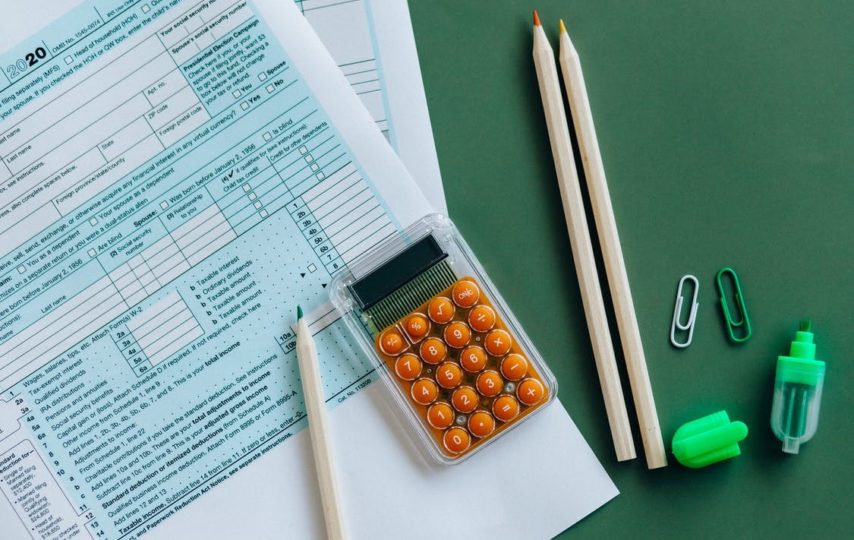Origin of Section 115 Baa of Income Tax Act
115baa of income tax act, 1961 was initially introduced by the Government of India via the Taxation (Amendment) Ordinance 2019 in September 2019, mainly for proffering reduced rates of taxes to indigenous firms and other domestic companies.
The Government of India has long been encouraging the country’s companies to manufacture domestically in order to boost our economic growth. Accordingly, indigenous manufacturing would enhance resources, employ the available talent and facilitate investment. Therefore, as an initiative towards the same, 115baa of income tax act was established.
Section 115Baa Of Income Tax Act offers tax benefits to domestic corporations
Features of Section 115 Baa of Income Tax
The primary aim behind the formulation of Section 115baa of income tax had been to offer reductions in the tax rate for the domestic companies. The taxation scheme in Section 115 Baa slashes the corporate tax rate from 30% to 25.17%, wherein Indian companies need to pay 22% of their revenue as tax, 10% as SC, and 4% of cess, or as applicable.
However, some income tax deductions and exemptions are not allowed if Indian firms apply for Section 115BAA of Income Tax Act. These are mentioned below:
- Deductions under Section 10AA
- Deductions linked to investment mentioned in Section 32AD
- Deductions as per 33AB for rubber, tea, and coffee manufacturing companies
- Additional depreciation provisional measures under Section 32(1)(iia)
- Deduction according to Section 35 for expenses that are incurred on scientific research, or sum paid to universities, research associations, National Laboratory, or IIT
- Deductions on expenses towards agricultural projects or skill development projects under Section 35CCC and 35CCD, respectively
- Deductions for capital expenditure as per Section 35AD
- Deductions as laid down in Chapter VI-A, except Section 80JJAA, 80LA, and 80M
Applicability of Section 115 Baa of Income Tax Act
Not all domestic firms are eligible to avail of the 115baa of income tax act. Individual owners, Partnership organizations, LLPs, BOI, societies, and foreign companies cannot avail this option. The option of concessional rate of tax as provided by 115baa of income tax would be applicable to a domestic firm that satisfies certain conditions as mentioned below:
- The company should have been commenced on or after October 1, 2019
- The new organization should not be an aftermath of a previous company split up
- The company should not be established on an existing business
- The company must not utilize the premises or building that had been previously a convention centre for other business operations
Also Visit: Solar Hot Water Perth Some Common Mistakes You Can Avoid
Implications of Section 115 Baa of Income Tax Act
Domestic companies that are looking to exercise the reduced tax option as per the 115baa of income tax act will be required to adhere to the prescriptions in Rule 21AE of the Income Tax Rules, 1962. Accordingly, the Rule 21AE’s option of u/s. 115BAA will be exercised by electronically furnishing details as mandated in Form No. 10-IC. The form needs to follow the official proforma that can be obtained from taxation offices. It is then to be made available to the principal officer, either under the applicant’s digital signature or an electronic verification code.
Implications of 115baa of income tax act are discussed below:
Brought forward losses
Brought forward losses and unabsorbed depreciation that pertains to exemptions and deductions above will not be eligible for being set off against the total income for the fulfilling Section 115baa. In that case, companies must only avail the benefit of section 115BAA after utilizing the brought forward loss on account of deductions and additional depreciation.
MAT provision
Minimum Alternate Tax (MAT) provisions will not be applicable as well as MAT credits cannot be utilized if Section 115baa is opted for. According to Section 115JB(5A)(ii), the MAT provisions laid down in Section 115JB will not apply to the domestic firm or company that has exercised the option already referred to under 115BAA or section 115bab. As previously clarified in Circular No. 29/2019 on 2nd October 2019, MAT is not applicable. The MAT credit cannot be made available to the assessee due to exercising this option. In that case, companies can avail of the benefit of section 115baa only after they have utilized the MAT credit against the regular tax payable.
Also Visit: What are the Treatments available for High-Risk Skin Cancer Clinic Sunshine Coast
Capital gains tax
Suppose an assessee company has opted to exercise the option of u/s. 115baa, there will be no consequence on the rates of tax of long-term capital asset (LTCG), short-term capital asset (STCG), and the brought forward losses under the capital gains. Section 115baa cannot supersede the other sections of Chapter XII (exceptions are Section 115ba and Section 115bab). Therefore, the incomes of particular natures as covered in Chapter XII would be subject to tax as per LTCG under Section 112 at 10% or 20%, STCG as per Section 111A at 15%, Section 112A at 10%, etc. Further, surcharge rates would also be implicated.
For more information please visit https://navi.com/blog/section-115baa-income-tax-act/.
Section 115baa of income tax act enables indigenous companies to pay reduced tax while steering clear of MAT. But domestic businesses should remember that it is only an optional way for paying tax and if they do not opt for concessional tax for availing exemptions, they must make the tax payments at pre-amended rates.













